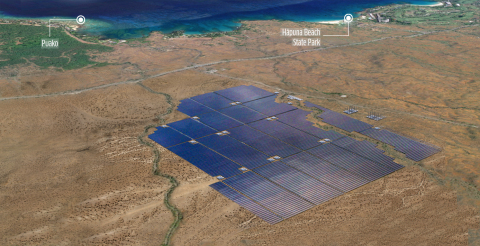
Further details of a 200MWh battery energy storage system (BESS) contract awarded to New HOrizons Ahead (NHOA) in Australia have been revealed.
This morning, the government of Western Australia (WA) announced it awarded NHOA the AU$155 million (US$116 million) contract to deliver what will be the state’s biggest lithium-ion battery system so far.
Enjoy 12 months of exclusive analysis
- Regular insight and analysis of the industry’s biggest developments
- In-depth interviews with the industry’s leading figures
- Annual digital subscription to the PV Tech Power journal
- Discounts on Solar Media’s portfolio of events, in-person and virtual
The 100MW / 200MWh BESS will be built on the site of Kwinana Power Station, a decommissioned coal-fired generation facility. Construction is set to begin during November and the BESS should be operational before the end of next year.
NHOA has handed a AU$50 million engineering, procurement and construction (EPC) and commissioning contract to local company GenusPlus Group.
WA’s government is funding the majority of the cost (AU$140 million) while the national government is funding a AU$15 million portion.
In October 2020, Energy-Storage.news reported that the state government had been considering the Kwinana site for the BESS’ location as it issued a Request for Information (RfI) for parties interested in working on the project.
State Premier Mark McGowan described the battery system yesterday as “crucial to Western Australia’s sustainable energy future” as well as a key part of his government’s Distributed Energy Resources Roadmap.
“There is a rapid energy transformation happening and energy storage systems such as this battery will play a key role in providing better energy outcomes for Western Australian households and businesses,” McGowan said.
According to government figures, a third of WA households already have rooftop solar, and by 2030 about half of them will. Meanwhile the state is targeting net zero emissions by 2050.
Company targets 1.7GWh of energy storage deployments in four years
Energy storage and e-mobility solutions company NHOA had said it had been awarded a utility-scale standalone battery project of 200MWh in Australia in its third quarter financial results release in early October, but at the time was not able to disclose more information.
The contract has been awarded through Synergy, Western Australia’s biggest energy generator and retailer (or ‘gentailer’ in Australian parlance). Synergy is owned by the state’s government and also trades wholesale electricity and gas.
Synergy will operate the battery system, using it to store excess rooftop solar PV energy generating during daytime lulls in demand, for discharge into the grid when demand peaks during the afternoons and evenings.
“WA’s biggest battery will support more renewable energy technologies joining the grid and help increase power stability,” state energy minister Bill Johnston said.
Johnston noted that NHOA has installed battery storage and microgrid systems in 26 different countries to date, calling the company “one of the world’s top utility-scale energy storage organisations” and offering congratulations to NHOA and subcontractor GenusPlus Group.
In a separate development, yesterday Energy-Storage.news reported Johnston and state-owned electricity network company Western Power’s launch of a tender to build a replicable ‘disconnected microgrid,’ using batteries, renewables and diesel back up, capable of powering rural towns in Western Australia independently of the grid.
NHOA was until earlier this year known as Engie EPS, until its majority acquisition by Taiwan Cement Corporation (TCC) and subsequent rebrand. In its financial results release earlier this month, NHOA said it expects to earn between €40 million (US$46.59 million) and €60 million revenues during 2021, and between €100 million to €150 million in 2022, which would enable it to break even in EBITDA terms.
The company is targeting 1.7GWh of energy storage capacity additions between this year and 2025 and extending its project pipeline to a value of €10 billion by that time.






